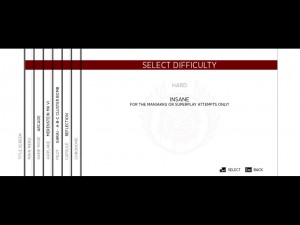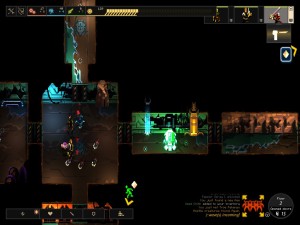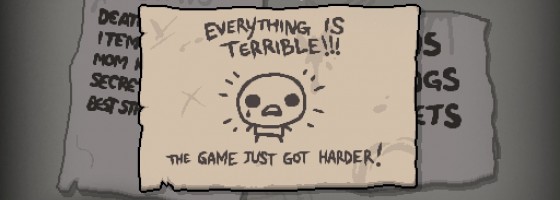Whenever I play Dungeon of the Endless, my mood swings between enjoyment and annoyance at the game design and hardcore rogue-like elements. Great rogue-likes are supposed to be tough games but there is a problem when they are too hard and when the game is less about the player’s control but instead dealing with the RNG. Today’s post examines the perfect run concept and why it’s a killer for playing rogue-like games.
Perfectly Challenging:
The idea of the perfect run was first seen in shoot-em-ups during the late 80s-90s, where games like R-Type were built around requiring the player to have a perfect run in order to win: Pick up every power up, not get killed and kill all the enemies. The reason was that the game’s design weaken the player every time they died by removing their powerups which made it easier to keep dying and was a negative feedback loop. A recent example would be the game Sine Mora which even had a difficulty setting that required perfect runs in order to even stand a chance.
On the outside, perfect run mastery seems like a great goal to achieve in rogue-like game design as you want your players to get better at the game and make the thrill of winning a goal to go for. However, the problem with the perfect run mindset is that it doesn’t mesh with the main attraction of rogue-likes: That every run is different.
Variation:
A perfect run as the name suggests is about having one way to victory — Winning the game requires X, Y, Z to happen every time. But rogue-likes aren’t about set conditions or strategies; you want things to be different both to challenge players and to keep the experience fresh.

Sine Mora made it clear that it demanded perfect runs to have any chance at beating the game on the highest settings.
If X is the only option that will win the game then what happens if the player doesn’t find X during their run? The answer is that they’re going to lose and no amount of player mastery or skill will mitigate that fact.
This is a big problem with Dungeon of the Endless’ design and how in order to stand any chance at winning you need things to go perfectly when it comes to progressing with heroes, items and major and minor modules.
Fall behind in any of those areas and you will simply not be able to win a game on easy mode. Now I know that some of you will comment that the requirements for winning are less on very easy mode but it’s still bad design to reduce the number of optimal choices or strategies based on difficulty level. What makes rogue-likes so great when it comes to replayability is the very fact that every run should be different and that nothing is set in stone and the best rogue-likes are the ones that keep the player guessing.
Avoiding Forecasts:
Great rogue-likes keep the player guessing when it comes to whether or not they’re going to win a playthrough. Some event can happen that swings things to either side — Maybe a slam dunk quickly becomes a nightmare or a poor run gets a game changer that leads to a win. The point is that the player should never be able to tell conclusively that they are going to win or lose.

Dungeon of the Endless’s limited mechanics means that the player only has a few ways to win and many,many ways to lose.
This is where player skill comes into the equation as expert players should be able to make their own luck in a manner of speaking — Figuring out the best way with limited items or making do in a bad situation. Now there is a limit to this and at some point the RNG should factor in, but the player should still have some control.
A great case in point is The Binding of Isaac series and how one item could dramatically change the entire run and you never knew until either the end or you run out of health as to whether or not you will succeed. FTL is an interesting example as the final boss is set every time, but there are several options available based on ship and items so that while there is one best way to win, there are other options available.
No Such Thing as a Perfect Crime:
The main attraction to the rogue-like genre is of course replayability and the fact that the player should never fall into a routine that happens every run. Figuring out the balance of player mechanics and enemy design needed to keep the results different comes with play testing and examining your title. The opposite of this problem would be if the game is so easy that every run ends in success no matter what the player’s skill was or the equipment they had and is also something to avoid.
Just like with any game and even one with a huge amount of replayability, there will come a point where players will figure out the best way to beat your game and is something that we see in almost every rogue-like. But again, that’s alright as it’s almost impossible to create a 100% different experience and challenge in every run.
Not every run is going to be a massive failure or an easy win but as long as things can swing either way, the player will be invested into continuing to play.

